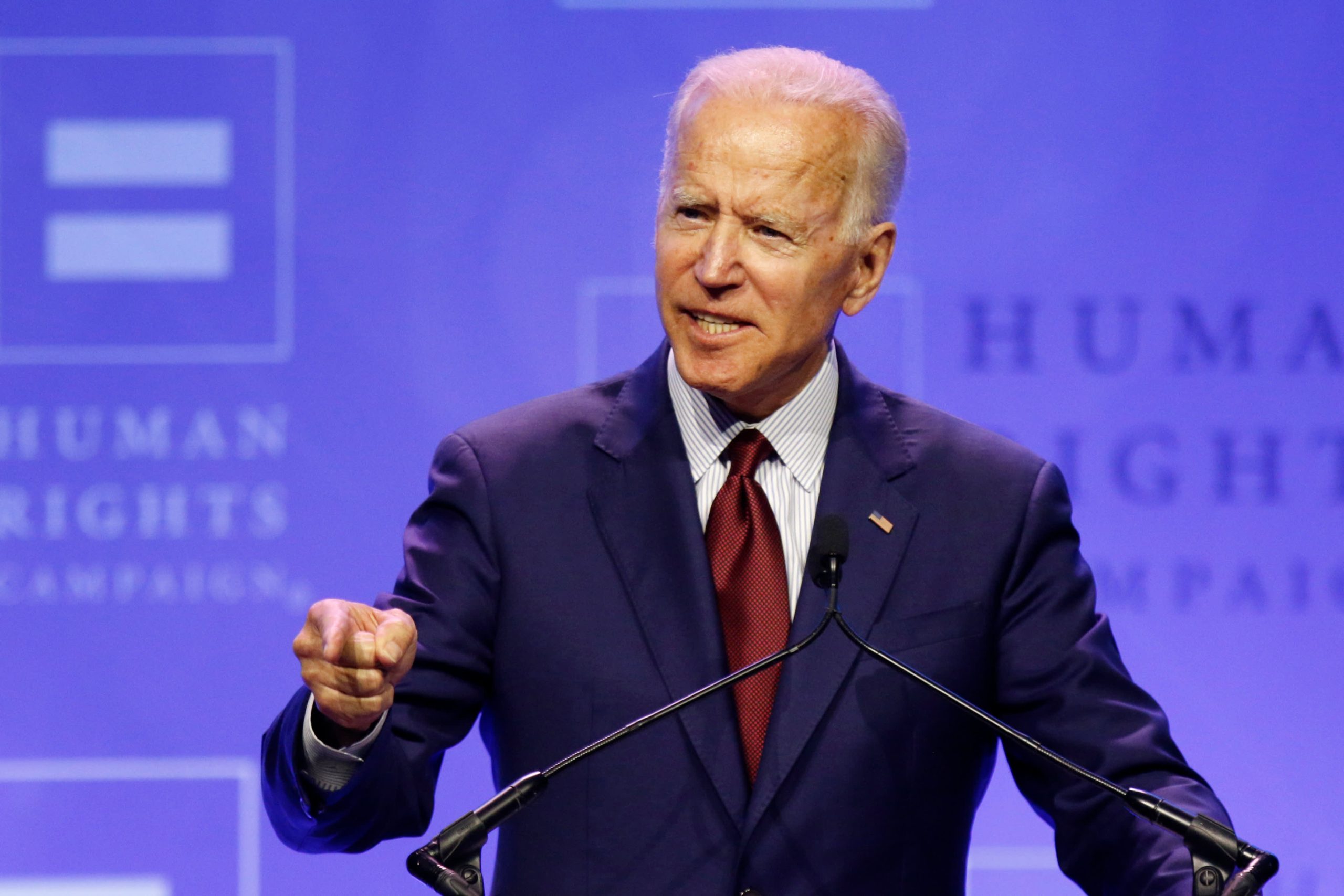President Biden criticized the Alabama Supreme Court’s recent ruling that classified frozen embryos as children under the law, calling it “outrageous and unacceptable.”
He linked the decision to the overturning of Roe v. Wade and pledged to continue fighting for women’s reproductive rights until the protections of Roe v. Wade are restored in federal law for all women in every state.
The ruling has led to the temporary pause of in vitro fertilization (IVF) treatments at the University of Alabama at Birmingham, the state’s largest hospital, as well as at Alabama Fertility Specialists.

Biden (Credits: CNBC)
The health system cited concerns about potential criminal prosecution or punitive damages for following the standard of care for IVF treatments.
The impact of the ruling extends beyond IVF treatments, affecting the legality of IVF itself, which has been crucial for helping women struggling with fertility to conceive.
IVF typically results in the creation of more embryos than are implanted, and the ruling could hinder couples’ ability to decide on the fate of their unused embryos.
The ruling arose from a lawsuit filed by couples who experienced the destruction of their frozen embryos when a hospital patient accidentally dropped the containers storing them. The decision has raised concerns about the broader implications for IVF and reproductive rights in the state.
Critics of the ruling, including President Biden’s campaign manager Julie Chavez Rodriguez, have tied it to former President Donald Trump’s appointments to the U.S. Supreme Court, which shifted its balance to a more conservative majority.
Vice President Kamala Harris also echoed these sentiments, emphasizing the impact of Trump’s appointees on reproductive rights. The ruling has sparked debates about the implications for reproductive rights and access to fertility treatments, highlighting the ongoing legal and political battles surrounding women’s reproductive health in the United States.
President Biden recently criticized the Alabama Supreme Court’s ruling that frozen embryos are considered children under the law, calling it “outrageous and unacceptable.”
He connected this decision to the broader context of reproductive rights, vowing to fight for the restoration of protections established by Roe v. Wade.
The ruling has led to the temporary suspension of in vitro fertilization (IVF) treatments at the University of Alabama at Birmingham and Alabama Fertility Specialists. The decision raises concerns about the potential criminal prosecution or punitive damages for those involved in IVF treatments.
This ruling’s implications extend beyond IVF treatments, affecting the legality of IVF itself, which is vital for assisting women struggling with fertility.
Typically, IVF results in the creation of more embryos than are implanted, and the ruling could impact couples’ ability to make decisions about their unused embryos.
The ruling emerged from a lawsuit filed by couples whose frozen embryos were destroyed in an accident. Critics worry about its broader implications for IVF and reproductive rights in Alabama.
Critics, including President Biden’s campaign manager Julie Chavez Rodriguez, link this ruling to former President Trump’s appointments to the U.S. Supreme Court, which shifted its balance to a more conservative majority.
Vice President Kamala Harris also echoed these concerns, emphasizing the impact of Trump’s appointees on reproductive rights.
Overall, the ruling has sparked debates about reproductive rights and access to fertility treatments, highlighting the ongoing legal and political battles surrounding women’s reproductive health in the United States.























